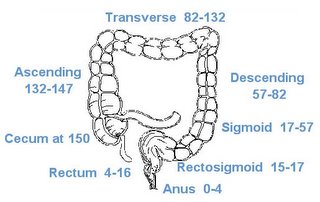
After combing through that highly technical article “Locally-advanced rectal cancer – a multidisciplinary approach” (the German protocol link from yesterday’s blog entry), I have a much better grasp of the rationale for the rectal tumour treatment option recommended by my surgical oncologist yesterday afternoon. Medical and scientific discoveries are moving so quickly that I had very little prior information from literature for the general public to fully appreciate why his recommendations were so different.
That delay between what the medical professional is doing and what is reported in literature for the layman was reinforced today when I received the shipment of the two books I had ordered online through Chapters.ca (Colon & Rectal Cancer: A Comprehensive Guide for Patients & Families and What Your Doctor May Not Tell You About Colorectal Cancer). Neither book even mentions total mesorectal excision or the neoadjuvant chemoradiotherapy recommended in the article and by my surgical oncologist. And not even the book The Intelligent Patient Guide to Colorectal Cancer (published this year), mentions high spatial resolution MRI or MRI lymphography. These latter images and techniques are a critical feature of the preoperative treatment for rectal cancer tumours and are already showing tangible results. Unfortunately, the results are mainly about improved local control of the tumour and reduced toxicity of chemoradiotherapy side effects; they do not yet show major differences in overall survival statistics (see the abstract of the German study). Most similar studies suggest at least improved quality of life for patients (the median age for study participants was about 63). The specialists also seem to be arguing about the cost-effectiveness of the treatment protocols.
Next Wednesday I go for a second scope test and biopsy, this time with a tool called a rigid sigmoidoscope. Instead of the gastroenterologist, it will be the surgical oncologist who performs the test. By the end of that procedure I will know whether we will be treating the tumour as rectal cancer (less than 15 cm from the anal verge) or colon cancer (more than 15 cm from the anal verge). Everything mentioned above concerns only treating the tumour as rectal cancer. Colon cancer treatment seems far simpler in comparison.

No comments:
Post a Comment